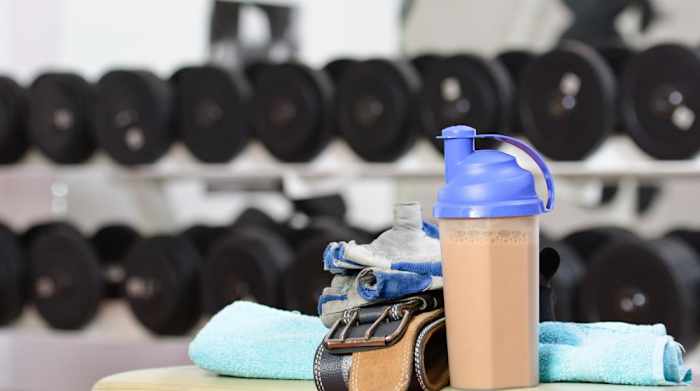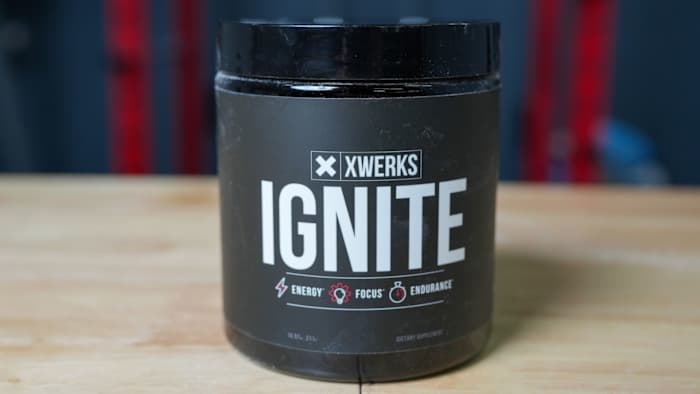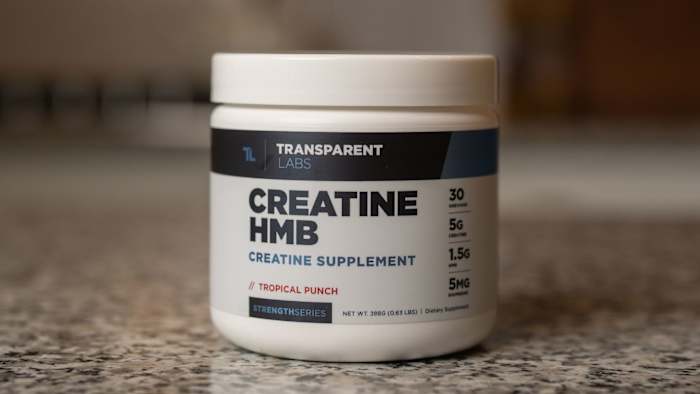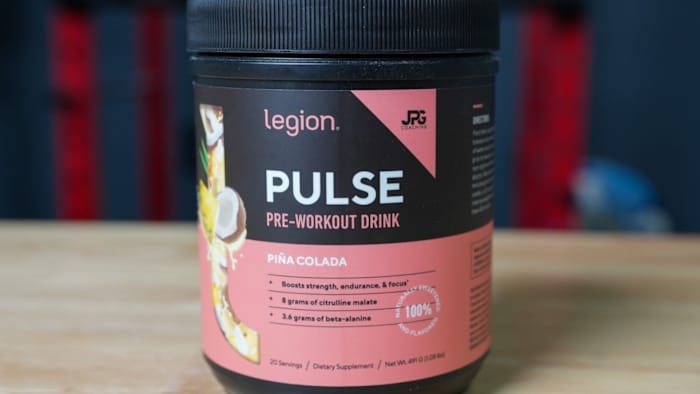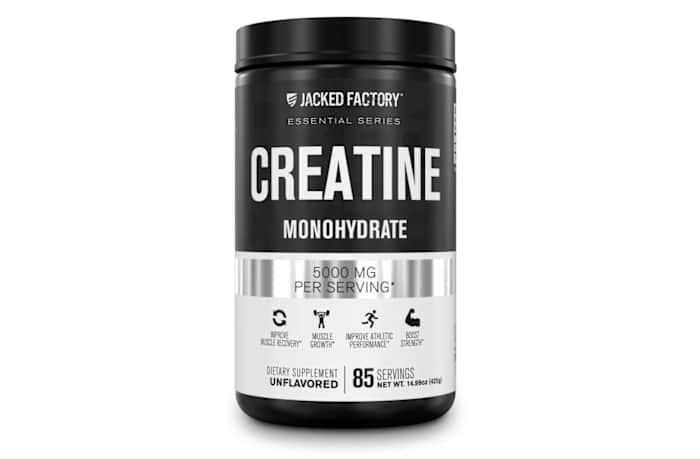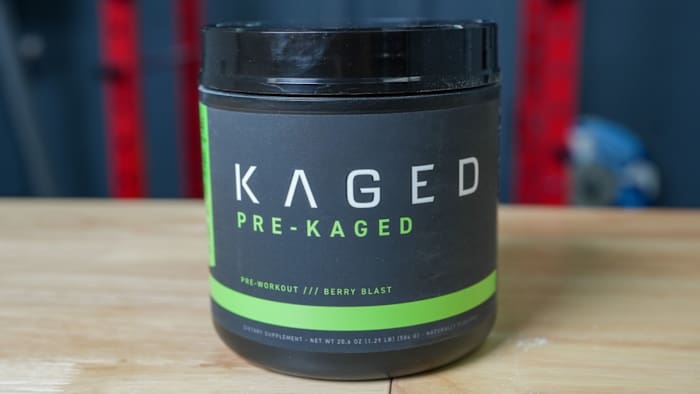The products featured in this article have been independently reviewed. When you buy something through the retail links on this page, we may earn commission at no cost to you, the reader. Sports Illustrated editorial staff are not involved in the creation of this content. Learn more here.
If you’ve ever browsed a sports supplement store or went searching online for exercise supplements, you probably already know that there’s an overwhelming amount of options.
Creatine and pre-workout supplements are two of the most popular choices in this category. They are both designed to help support energy levels, endurance, muscle growth, strength and exercise recovery.
However, although some of the benefits are similar, there are also some key differences between these two types of supplements. Before you buy, it’s important to know which one is a better fit for you and your unique fitness needs.
In this article, we compare and contrast creatine and pre-workouts and offer some recommendations for our favorite creatine and pre-workout supplements.
This content is meant to be informative, but should not be taken as medical advice. It is not intended for use as diagnosis, prevention or treatment of health problems. Always speak with your doctor before starting any new supplement or exercise regimen.
What Is Creatine?
“Creatine is a natural compound found in our muscles that plays a crucial role in energy production during high-intensity exercises,” says Kristin Draayer, MS, RDN, CPT, a registered dietitian and personal trainer.
Thanks to its role in exercise performance, creatine is also a popular sports supplement.
Benefits
Creatine offers several potential benefits for people who are interested in enhancing their exercise performance and recovery.
“Supplementing with creatine has been shown to increase muscle strength and power,” explains Draayer, “allowing you to push harder during workouts and lift heavier weights.”
“In addition to boosting strength,” she says, “creatine can also improve endurance by enhancing the body's ability to produce adenosine triphosphate (ATP), the primary source of energy for muscle contractions.” This translates to more exercise endurance and delayed muscle fatigue.
She adds that creatine has also been linked to faster recovery times, helping to reduce muscle damage and soreness after intense workouts. “This can help you get back to training sooner and make progress faster,” she adds.
Side effects
“Creatine is safe for most of the population, except potentially those who have kidney disorders,” says Felicia Newell, RD, BSc, Pn1, NASM-CPT, a personal trainer and registered dietitian.
Some minor side effects, like dehydration, stomach upset or muscle cramping may occur with use. Be sure to stay well-hydrated when using creatine.
Common ingredients
Most creatine supplements are powdered and unflavored, and they contain just one ingredient: creatine.
The most common and well-researched form is creatine monohydrate, but some creatine supplements are made with creatine phosphate.
Related Post: The Different Types of Creatine
What Is Pre-Workout?
“Pre-workout supplements can improve energy levels, focus and workout performance,” says Draayer. The key purpose of taking a pre-workout before you exercise is to feel more energetic.
These supplements contain combinations of various ingredients. Most often, the key ingredient is caffeine. However, there are some stimulant-free or “non-stim” pre-workouts that are caffeine-free.
Benefits
The key benefit of pre-workout is boosted energy levels and focus. “This comes from caffeine,” says Draayer, “which can improve alertness and mood and reduce perceived effort during exercise.”
The various other ingredients in pre-workouts—which vary greatly from brand to brand—may offer other benefits, including:
- Increased muscular endurance
- Increased strength
- Reduced post-workout fatigue
- Faster reaction times
Related: Unleash Your Strength: A Comprehensive Guide to the Strongest Pre-Workouts on the Market
Side effects
Pre-workout has more potential side effects than creatine, mostly due to its caffeine content.
“For some, pre-workout can cause tachycardia (elevated heart rate), skin itchiness, jitters or shakiness,” says Newell, “and it is not recommended for certain populations such as those with cardiovascular issues or pregnant individuals.”
To avoid unpleasant side effects related to too much caffeine, try to limit your total caffeine intake—from pre-workout, coffee and other caffeinated beverages or products—to 400 milligrams per day. For reference, most pre-workouts contain 150 milligrams of caffeine per serving.
Common ingredients
“The benefits of pre-workouts depend on the specific ingredients used,” says Draayer, “which vary widely in pre-workouts. Not all ingredients in pre-workouts may be suitable for every type of exercise and some ingredients may not have any benefit at all.”
Some of the most common ingredients found in pre-workout supplements, according to a 2018 review in the Journal of the International Society of Sports Nutrition, include:
- Caffeine
- Taurine
- Branched-chain amino acids (BCAAs)
- L-arginine
- L-citrulline
- Malate
- Beetroot extract
- Creatine
- Betaine
- Beta-alanine
Note that some pre-workout supplements may contain creatine as an ingredient, but not all of them do.
“In addition, some pre-workouts use proprietary blends,” explains Draayer, “which means that they don't disclose the specific amounts of each ingredient. This can make it difficult to know whether you're getting an effective dose of the ingredients that you want.” For this reason, it’s important to choose a pre-workout that doesn’t use proprietary blends.
She adds, “To ensure that you're getting a high-quality pre-workout, look for products that have been third-party tested to verify the purity and accuracy of their ingredients.”
Related: Level Up Your Gym Sessions with the Best Pre-Workout for Women
What Are the Differences Between Creatine and Pre-Workout?
“Creatine and pre-workout are separate products that can’t be compared apples to apples,” says Gianna Beasley, MS, RD, CPT, a registered dietitian and personal trainer.
She explains that creatine is a compound naturally produced in the body, and the supplemental form may help enhance strength, endurance and recovery.
Pre-workout, on the other hand, often includes combinations of several ingredients—including caffeine. These ingredients work together to offer endurance and recovery benefits, but the key benefit of pre-workout (especially formulas that contain caffeine) is to give you an energy boost for the workout.
Which Is Better: Creatine or Pre-Workout?
The short answer to this question is, it depends.
“It’s not necessarily a question of one supplement being better than the other,” explains Draayer, “but rather which supplement is better suited to an individual’s specific fitness goals and needs.”
She says that creatine is a better fit if your goal is exercise performance and recovery, and pre-workout is the best choice if you want more energy while exercising.
Newell adds, “Creatine in my opinion is slightly better due to its extreme safety profile for the general population.” However, she also comments that both creatine and pre-workout have been used safely by many people for decades.
In conclusion, says Beasley, “They are both great depending on the desired outcome, and there are some pre-workout products on the market that combine them together for ease.”
Our Favorite Creatine and Pre-Workout Products
- XWerks Ignite
- Transparent Labs Creatine HMB
- Legion Athletics Pulse Pre-Workout
- Jacked Factory Creatine
- Kaged Pre-Kaged
XWerks Ignite
XWerks Ignite is a pre-workout supplement that delivers 150 milligrams of caffeine per serving (about as much as 1.5 cups of coffee). In addition, it contains a number of notable ingredients that may help improve workout performance and recovery—like L-citrulline, L-tyrosine and beta-alanine.
It’s important to note that this product contains the artificial sweetener sucralose as well as artificial flavors, but reviewers say it delivers a noticeable and immediate boost in energy.
Transparent Labs Creatine HMB
Transparent Labs Creatine HMB is a combination of creatine and beta-hydroxy methylbutyrate (HMB). According to a 2019 review in Nutrients, HMB and creatine together may help improve strength and muscle mass while reducing fat mass. Like all Transparent Labs products, this supplement is also free of artificial colors and flavors, and is third-party tested by Analytical Resource Labs.
It’s pricey for a 30-day supply, but it contains 5,000 milligrams of creatine (a clinically effective dose), and reviewers say they’ve noticed improved endurance and faster recovery time from using Creatine HMB.
Transparent Labs recommends taking one scoop mixed with 10 to 12 ounces of water 30 minutes after a workout or in the morning on non-workout days.
Related: Transparent Labs BULK Black Pre-Workout Review
Legion Athletics Pulse Pre-Workout
Legion Athletics Pulse is one of the best pre-workouts I’ve reviewed, thanks to its all-natural formula that is free of artificial ingredients. We like that Legion puts its pre-workouts and protein powders through third-party testing for purity and potency.
Pulse contains six active ingredients in clinically effective doses, including 8,000 milligrams of L-citrulline malate, 3,600 milligrams of beta-alanine, 2,500 milligrams of betaine anhydrous and 350 milligrams of caffeine anhydrous per serving. This formula is designed to boost energy and focus while you exercise without the jitters. I also like that Pulse contains electrolytes, which will keep you hydrated during a particularly sweaty workout.
Another reason we recommend Legion Pulse Pre-workout is that it comes in 18 flavors, so there is something for everyone. My favorites are Cherry Limeade, Strawberry Kiwi and Pink Lemonade. Legion recommends mixing two scoops of Pulse into 10 to 12 ounces of water 15 to 30 minutes before your workout for best results.
Read our in-depth Legion Pulse Pre-Workout Review for more information on this popular supplement.
Jacked Factory Creatine
Jacked Factory’s Creatine Monohydrate contains 5,000 milligrams of creatine per serving. It’s unflavored, so you can easily mix it into any shake or beverage. It also contains just one ingredient: creatine monohydrate.
It’s much less expensive than other creatine products, making it a great buy if you’re on a budget. Reviewers say it works really well and they like that it’s flavorless and dissolves easily.
To take it, mix one scoop into eight to 10 ounces of water or any beverage up to three times daily.
Kaged Pre-Kaged
If you’re a serious athlete or bodybuilder looking for a pre-workout, I recommend Kaged Pre-Kaged. While this supplement comes at a premium price point, I think it’s worth it if you’re looking to gain muscle mass because this pre-workout contains creatine and BCAAs.
I think Kaged Pre-Kaged is one of the most well-formulated pre-workouts available because it has all the ingredients you need to reduce muscle fatigue and enhance your performance. Each serving of Pre-Kaged includes 13 clinically dosed ingredients, including 6,500 milligrams of L-citrulline, 2,500 milligrams of betaine anhydrous, 4,750 milligrams of fermented BCAAs and 1,500 milligrams of creatine hydrochloride. Another plus? Kaged Pre-Kaged does not include any artificial colors or flavors, is Informed Choice Certified and is banned substance-free.
Pre-Kaged comes in seven flavors, and of the ones I’ve tried, Pink Lemonade is my favorite. Mix one scoop of Pre-Kaged into 16-20 ounces of water about 30 minutes before you hit the gym.
Read our in-depth Kaged Pre-Kaged Pre-Workout Review for more information on this popular supplement.
Creatine vs. Pre-Workout FAQs
Does pre-workout contain creatine?
Some pre-workout supplements contain creatine, but not all of them do.
Can you take creatine and pre-workout together?
Yes, you can take creatine and pre-workout together. Be sure that the pre-workout you take doesn’t already contain creatine. It’s also a good idea to ask your healthcare provider before adding any new supplements to your routine.
Should beginners take creatine or pre-workout?
“While neither creatine nor pre-workout supplements are necessary,” says Draayer, “creatine is likely the better choice for beginners as it has been extensively studied and is considered safe and effective for most people.” She adds that pre-workouts can be more variable in terms of their ingredients and dosages, and that most people could get similar effects from a cup of coffee or caffeinated tea before their workout.
Related Post: Coffee vs. Pre-Workout: Which Is Better For Your Gains?
Final Thoughts
Creatine and pre-workout are both extremely popular and commonly used sports supplements. Generally, pre-workout is a better choice if you’re looking to feel more alert and focused during your workout. Creatine is the best fit if you want to increase strength, gain muscle and reduce recovery time. However, you can also find pre-workout supplements that contain creatine for the best of both worlds.
Prices are accurate and items in stock as of publish time.
